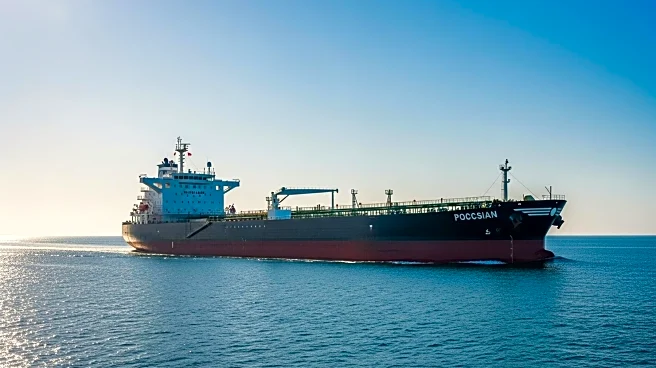What's Happening?
Despite facing over 30,000 sanctions, Russia has managed to export $913 billion worth of oil and gas, with Turkey playing a crucial role in facilitating these transactions. Turkey has become a key intermediary, allowing Russian oil to be blended and re-exported legally, bypassing Western sanctions. This has been achieved through various workarounds, including ship-to-ship transfers, shell companies, and blending Russian oil with non-sanctioned fuels. Turkey's strategic position and diplomatic history have enabled it to maintain economic ties with Russia while balancing relations with Western allies. The country's actions have provided Russia with an outlet for its energy exports, benefiting both nations economically.
Why It's Important?
Turkey's role in facilitating Russian oil exports amid sanctions highlights the complexities of global trade and diplomacy. The situation underscores the challenges of enforcing sanctions and the ingenuity of countries and companies in finding legal loopholes. Turkey's actions have significant implications for international relations, as they affect the effectiveness of Western sanctions and the global energy market. The country's ability to navigate diplomatic tensions and maintain strategic leverage with both Russia and Western allies is crucial for its economic and political stability. The situation also raises ethical questions about the enforcement of sanctions and the impact on global trade.
Beyond the Headlines
Turkey's facilitation of Russian oil exports reflects broader geopolitical dynamics, with implications for global energy security and economic policies. The situation highlights the challenges of balancing national interests with international obligations, as countries navigate complex diplomatic landscapes. Turkey's actions may influence future trade policies and the development of international sanctions regimes. The situation also raises questions about the role of intermediaries in global trade and the impact on regional stability.









